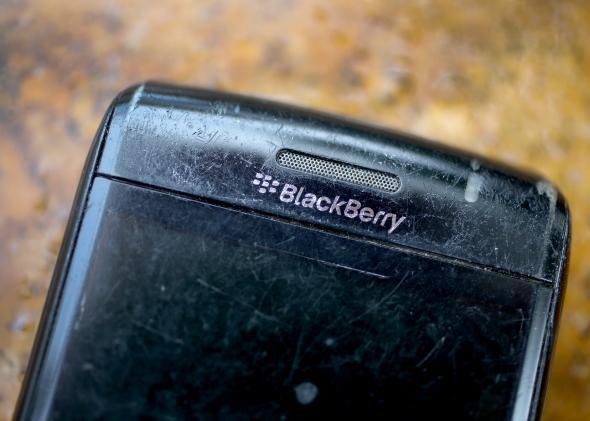BlackBerry just released its third-quarter earnings report, and, well, let’s just say that “earnings” is a misnomer.
The Company Formerly Known as Research in Motion posted a quarterly loss of $4.4 billion—yes, billion—the Globe and Mail reports. For context, that’s almost four times as much money as it took in. The loss represents a massive writedown on unsold inventory, as literally no one bought the company’s new smartphone, the BB10. OK, not literally. But almost literally.
It’s now been 1½ years since Farhad Manjoo declared the company “99 percent dead.” I guess it’s now, what, 99.9 percent dead? Even the company’s own “creative director” has apparently moved on to the iPhone.
One might think the dignified thing to do, at this point, would be to pull the plug and let the batteries drain one last time on the once-great Canadian company that invented the smartphone. But no: Interim CEO John Chen is apparently recharging for a new strategy, which involves partnering with Foxconn to make cheap smartphones to sell in Indonesia. Remember, it was only a month ago that BlackBerry backed out of a deal to sell itself for $4.7 billion, with Chen insisting the company was “committed to reclaiming success.”
Chen does have a reputation for reviving companies, and miraculously, the company does still have $3.2 billion in cash on hand. Still, something tells me he may be leaving that $2 million performance bonus on the table this year.
For those interested in how the company fell so far, so fast, the Globe and Mail offered an in-depth account earlier this year. Sam Gustin has the tl;dr version today in Time:
After growing to dominate the corporate market, the company failed to anticipate that consumers — not business customers — would drive the smart phone revolution. BlackBerry was completely blindsided by the emergence of the “app economy,” which drove massive adoption of iPhone and Android-based devices. BlackBerry failed to learn that smartphones would evolve beyond mere communication devices to become full-fledged mobile entertainment hubs.
